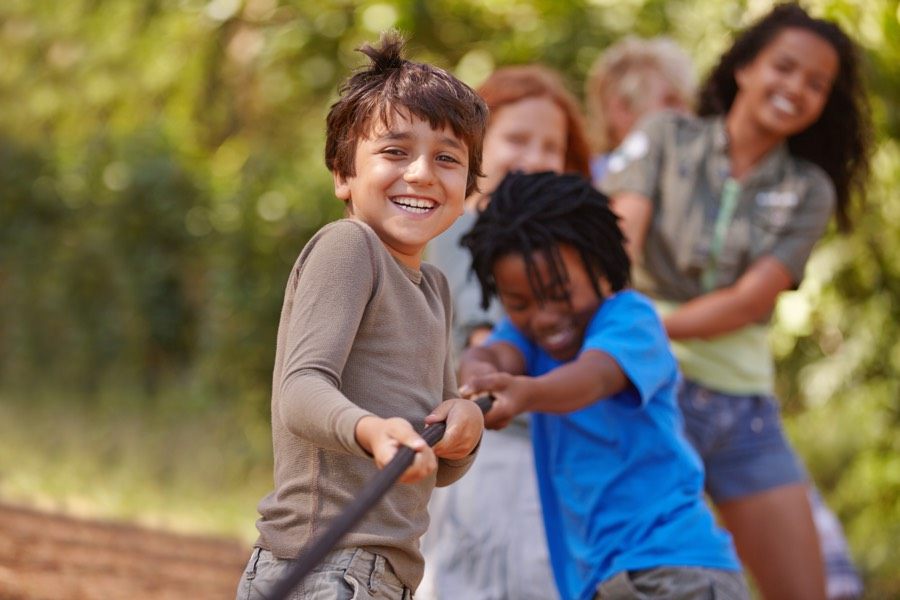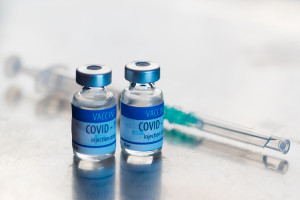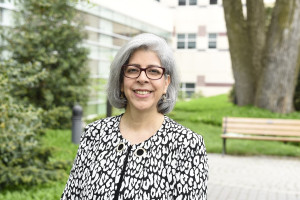10 Ways to Keep Your Family Safe From Coronavirus This Summer
Experts from the Children's Hospital of Philadelphia offer tips on everything from swimming in public pools to choosing child care amid the pandemic.

A group of kids in a tug-of-war game.
The school year has officially come to an end and many families are preparing for a summer burdened by unprecedented social restrictions due to the coronavirus pandemic. Many parents have begun searching for ways to keep their children engaged over the summer months without increasing their risk of exposure to the virus.
NextHealth PHL spoke with experts from the Children’s Hospital of Philadelphia (CHOP) about ways families can avoid unnecessary risks while still having some summer fun. Here’s what they recommend:
Consider the cumulative risks.
When it comes to planning summer activities for the kids, Susan Coffin, clinical director of the division of infectious diseases at CHOP, says the most important thing to remember is that risk is cumulative.
“Any one act activity you may choose to join in as a family may not confer a large amount of risk. But you do want to consider the groups of activities that you and your family are doing over the course of a week that add to the total amount of risk that your family is taking on in terms of exposure to coronavirus,” she said.
“So, perhaps what your family might choose to do would be to go to a family barbecue with a couple of other families. That may be really important to your family, but you can balance that risk by not taking on any other risks that week by doing things like foregoing the trip to the beach that weekend or perhaps not spending a lot of time out in the park. We have to think about balancing risk by the choices that we make and not taking on a lot of big exposures simultaneously.”
Choose your mode of transportation wisely.
If you’re planning a trip to the Shore or even to your local grocery store, public transportation might put you at greater risk for exposure to the virus. Instead, Coffin recommends taking a private car, if you can, or keeping your distance if you absolutely have to board a bus or train.
“I think there are so many people in our area who just want to get down to the beach, and there are some ways to do that more safely than other ways,” Coffin said.
“The way in which you travel is going to help reduce your risk. So, if you have the option to go in a private car as opposed to a bus or train, that will reduce risk. If you are using public transportation, try to choose a corner of a bus or train that is far away from others, keep your mask on while you’re there and then try to clean the area in which you are.”
Know the infection rates in the area you’re traveling to.
Katie Lockwood, a pediatrician at CHOP Primary Care South Philadelphia, says it’s important to be aware of how coronavirus is affecting the city you’re traveling from as well as the one you’re traveling to.
“If you’re thinking about vacationing to other places, you should consider what the local epidemiology is at that time,” Lockwood said
“Are you traveling from a higher risk area to a lower risk area and potentially exposing people there or vice versa? Are you in an area where the rates are pretty low and you’re traveling into an area where the rates are higher than that? You have to weigh your own family’s health risks to determine how risky that travel would be for you and your family. If you are going to be in a higher risk area, it’s important to know what the healthcare situation is like in that region.”
Set mutual rules for playdates and joint family outings.
As a parent herself, Lockwood understands how excited families are to resume playdates and gatherings but, she says, some activities are safer than others.
“Outside time has been one way that I’ve tried to address this and that I recommend to patients; doing things where the kids can physically distance a little bit more. So, a bike ride or a hike where they can separate in space and wear their masks, that can really help get that social interaction without them being so close that you’re worried about them sharing their germs that kids always do,” Lockwood said.
“I think if they put a mask on and take a bike ride, that can be a really nice compromise of a way to get social interaction and physical activity while minimizing the risks.”
Coffin emphasized the importance of creating a social compact of sorts to make sure all families involved in group outings are engaging in the same safety measures.
“You are joining with members of your community and agreeing to do all you can to keep the other members of your extended family healthy and safe with the assumption, and sometimes the explicit discussion, that they will do the same for you,” Coffin aid.
“I think it’s through these quick but clear conversations about how you’ve been keeping your family safe, and making sure you’re on the same page and that you can share some assumptions that the activities you do will be mirrored by the other family. And that confers similar levels of risk and safety across the blended groups that you’re expanding to join.”
Make sure your child’s daycare is implementing proper safety measures before letting your child return.
Coffin says there are several safety measures daycare facilities should adopt to create an extra level of safety for families.
“Some questions you might want to ask are, has your daycare begun to do some additional screening of the staff that works there? Are the staff being coached to make sure that if they have early signs of illness, they know to stay home that day to make sure it doesn’t blossom into anything else? Are staff being asked to wear masks to reduce the exposure of the children to the adult respiratory droplets? These are all good things that I would ask a daycare before having my child spend time there,” Coffin said.
If you hire a babysitter, ask about their social network.
According to Coffin, it’s important to make sure a babysitter is comfortable with the safety measures you’re implementing in your home. But it’s also important to know how they’re maintaining their own safety when they’re not in your home.
“If you’re going to choose an in-home care provider, you want to have an understanding of the choices that they’re making outside of work in terms of how large and expansive their own social network is becoming and whether or not they’re choosing to embark on a lot of social activity, perhaps with less masked people,” she said.
“If they are, then you may need to reconsider whether or not you have the best match in terms of a caregiver for your family.”
You can take the kids swimming, but be mindful, chlorine may not prevent them from catching coronavirus
“The concentration of chlorine in pools, public or private, is rarely constant, and we often struggle to maintain adequate concentrations. So, I hesitate to assume that just because the pool is supposed to be chlorinated, that it would provide us complete killing of a respiratory virus like coronavirus,” Coffin said.
“The other thing that’s inevitable with swimming, and I think particularly with kids swimming, is the amount of splashing, sputtering and spewing of respiratory droplets, because sadly, that is the way the coronavirus has spread. I am concerned that until we have exceptionally low levels of respiratory virus activity in our community, it might not be advised to go to a large pool that many people use. Family pools or small pools may be something to consider. And sprinklers, sprinkle parks, and water parks may be better options.”
If you or your child has asthma, make sure you’re taking asthma maintenance medications.
“The main issue with coronavirus is that it causes lots of inflammation, and many asthma medicines and allergy medicines cut down inflammation,” said Jonathan Spergel, chief of the allergy program at CHOP.
“If you have asthma, it’s really important to stay on those asthma medicines to cut down on inflammation. And if anything, it may protect you. It won’t protect you from getting sick, but it can protect you from getting sicker.”
Be careful wearing masks in the summer heat, especially if you have asthma or seasonal allergies
“You definitely can wear a mask even if you have asthma or allergies. It will protect you from viruses and allergens. But as someone who wears a mask regularly, I find wearing a mask makes me really thirsty and dry. So, you definitely want to make sure that you hydrate really well when you wear a mask all day. I think that’s even more true when you’re out in the heat. If you do have to go out and wear a mask, make sure you hydrate and drink lots of water,” Spergel said.
“In terms of what type of mask to wear, I think cotton masks are good during the summer. They’re a little more breathable than other fabrics.”
Try to host some family meals outdoors.
“Meals are a higher risk time because our masks have to be off, and that’s one of the reasons why restaurants are having to think carefully about how they reopen. Certainly, what some of the restaurants are doing is having outdoor dining because it’s a little bit less risky to have the fresh air circulation,” Lockwood said.
“You also want to try to keep some distance at the table. Not sitting too close together can be another way to be safe. You shouldn’t share food items themselves; you should make sure everyone has their own food so that they won’t be dipping their fork into someone else’s meal and then putting it into their mouth. So, no sharing, keeping a little bit of a distance and preferably dine outside if you can.”


